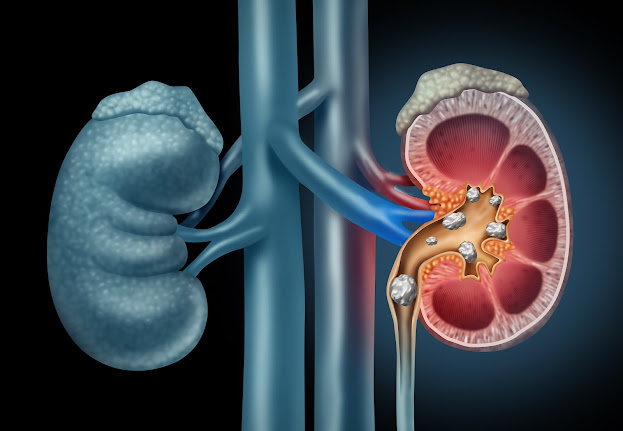How Stone Disease Affects Your Daily Life?
Stone disease, commonly referred to as kidney stones or urolithiasis, is a condition that affects a large portion of the global population. In recent years, awareness around the impact of Stone Disease In Dubai has grown, as lifestyle, diet, and environmental factors continue to influence the health of the kidneys. But beyond the medical terms and treatment options, how does stone disease actually affect your daily life? From sleep disturbances to social interactions, this condition can significantly interfere with your routine, comfort, and emotional well-being.
Understanding Stone Disease
Stone disease occurs when hard deposits of minerals and salts form in the kidneys. These stones may remain in the kidneys or travel down the urinary tract, causing a range of symptoms such as pain, bleeding, urinary infections, or blockages.
There are different types of kidney stones:
Calcium stones (most common)
Uric acid stones
Struvite stones
Cystine stones
The Physical Impact of Stone Disease
Persistent Pain and Discomfort
One of the most immediate effects is pain—sharp, severe, and often sudden. It may start in the back or side and radiate to the lower abdomen or groin. This pain can be debilitating, making even the simplest tasks—like walking, standing, or sitting—feel unbearable.
Fatigue and Energy Loss
When you’re dealing with pain regularly, it takes a toll on your energy. Sleep becomes disrupted, your appetite may drop, and overall fatigue sets in. Tasks that once felt easy—cooking, cleaning, exercising—become exhausting chores.
Urinary Changes
Frequent urination, a burning sensation while urinating, or cloudy and foul-smelling urine are common. In some cases, there might even be blood in the urine. These changes can be distressing and may interrupt work, travel, or social plans.
The Emotional and Mental Strain
Living with chronic or recurring stone disease isn’t just a physical experience—it’s an emotional journey too.
Anxiety Over Flare-ups
The unpredictable nature of stone episodes means people often live in fear of the next attack. This anxiety can become paralyzing, leading to avoidance of social events, travel, or long work hours.
Mental Fatigue
Constant pain or discomfort leads to reduced concentration, memory problems, and overall cognitive fog. Many individuals report difficulty focusing on work or conversations when dealing with stone-related symptoms.
Disruption to Routine Activities
Work and Productivity
Kidney stones can have a major impact on job performance. Frequent bathroom breaks, absence due to hospital visits, or the inability to sit or stand for long periods can make it hard to meet job expectations.
Travel Limitations
Traveling with stone disease can be stressful. Long drives or flights may aggravate the pain. Additionally, unfamiliar environments may lack easy access to restrooms, medications, or emergency care, making travel planning more complicated than it needs to be.
Physical Activity
While exercise is crucial for overall health, stone sufferers often avoid it due to fear of triggering pain or dehydration (a known risk factor for stone formation). This lack of movement can lead to weight gain, poor circulation, and worsening overall health.
Impact on Diet and Hydration Habits
To manage or prevent stones, individuals must often make significant dietary changes:
Reducing salt, animal proteins, and oxalate-rich foods (like spinach or chocolate)
Drinking large amounts of water daily
Limiting certain beverages like soda or caffeine
Relationships and Social Life
Strain on Romantic Relationships
Pain, fatigue, and mood changes can affect intimacy. Partners may struggle to understand the condition or know how to offer support, leading to emotional distance.
Parenting Challenges
Parents with stone disease may find it difficult to keep up with their children’s energy levels. From school runs to playing outdoors, stone-related limitations can affect the ability to be fully present.
Friendship and Community Disconnect
Constantly canceling plans due to pain or doctor’s visits can isolate you from your social circles. Over time, friends may stop inviting you altogether, assuming you're always unavailable.
Long-Term Lifestyle Adjustments
Managing stone disease often becomes a lifelong endeavor. This may include:
Regular imaging tests
Blood and urine analysis
Ongoing dietary monitoring
Medications to prevent recurrence
FAQS
Can kidney stones come back after treatment?
Yes, kidney stones have a high recurrence rate, especially if lifestyle and dietary factors are not adjusted post-treatment.
Is stone disease considered a chronic illness?
While not always categorized as chronic, recurrent stone disease can become a long-term condition requiring continuous management.
What are early signs of kidney stones?
Early symptoms may include:
Mild flank or back pain
Frequent urination
Discolored or cloudy urine
A persistent urge to urinate
How can I prevent kidney stones naturally?
Some natural prevention tips include:
Drinking enough water
Reducing sodium and animal protein intake
Avoiding high-oxalate foods
Including citrate-rich fruits like lemons and oranges
Is it safe to exercise if I have kidney stones?
Yes, but it’s important to stay hydrated and avoid overly strenuous workouts if you're at risk of stone formation. Light to moderate activity is generally encouraged.
Conclusion
Stone disease is far more than just a painful inconvenience. It’s a condition that can disrupt your entire way of living—from how you eat and sleep to how you work and socialize. The emotional and psychological toll is just as real as the physical pain, making it crucial to recognize and manage the disease holistically. Whether you're navigating a new diagnosis or living with recurrent stones, understanding how stone disease impacts daily life is the first step toward reclaiming control and comfort.




Comments
Post a Comment